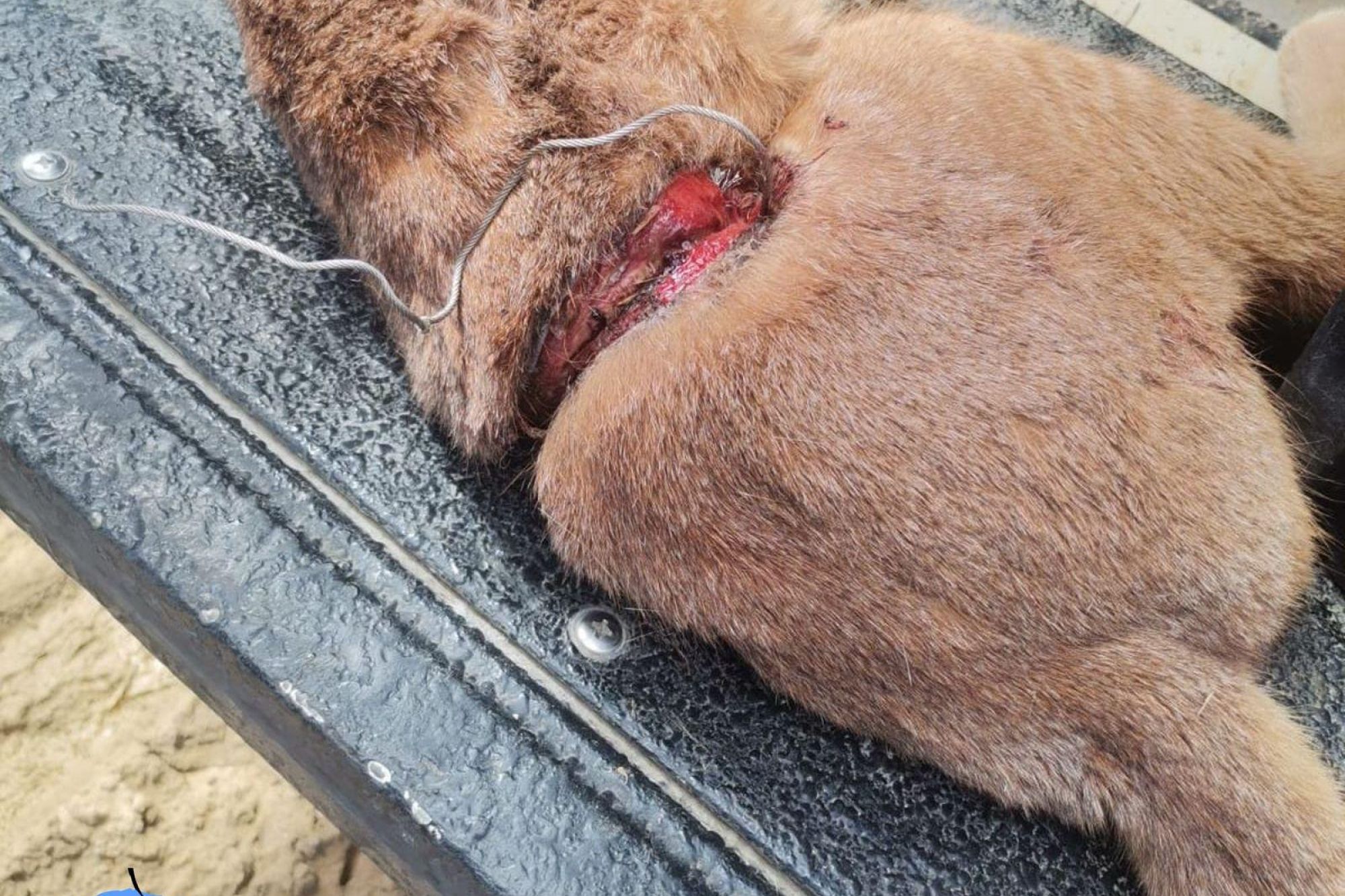Collaborative Snare Free Initiative Proves Its Worth
Three months ago, on 1 August, leading conservation, animal welfare and volunteer organisations in the Western Cape joined forces to launch Snare Free – a multi-component initiative aimed at providing a coordinated response to snared wildlife incidents in the province.
The need for and benefit of Snare Free was clearly demonstrated on Sunday 3 September, when the Snare Free hotline received a call requesting assistance for a caracal caught in a snare on a fence line in the Hemel-en-Aarde valley, Overberg. Once the incident was verified, the Western Cape Snare Response Plan (WCSRP) was activated, which included notifying the relevant conservation authorities and arranging for a wildlife veterinarian. While waiting for help to arrive, the reporter of the incident made sure to keep people out of the area to minimise any undue distress to the animal.
A veterinarian from Caledon Vet Clinic and a field ranger from Overstrand Municipality responded to the incident, with off-scene oversight from the designated CapeNature off-reserve manager. The caracal – a young adult male – was darted and the snare was removed from around its lower abdomen. After careful examination, it was determined that the injuries were superficial – thanks in part to quick and efficient reporting and response. The caracal was injected with a long-acting antibiotic to prevent potential infection and was then successfully released in a nearby natural space shortly afterward.
Caracal sedated, snare removed and abrasion disinfected before release Credit: Caledon Vet Clinic
One month after this incident, on 3 October, another young male caracal was caught in a snare in a vineyard in the Overberg area. The WCSRP was again mobilised upon request from CapeNature; the caracal was darted, the snare removed from the pelvis and the cat’s injuries assessed. Unfortunately, it was clear that this animal had been struggling in the snare for a long time – it had extensive wounds that would not have healed successfully, and the caracal was humanely euthanised on site. The carcass was sent to the Urban Caracal Project and will contribute to research on caracal and their threats in the Western Cape. Sadly, despite the best efforts, not all animals can be saved, and this incident again highlights the cruelty and unselective-ness of snaring as a hunting method.

Caracal with massive lacerations around pelvis and abdomen
An example of a wire snare
Most snares are made from wire but rope and cable are also used
In the three months since the launch of Snare Free, the Cape Leopard Trust (CLT) has led nine presentations, workshops and training sessions for over 350 people from a diverse group of stakeholders, land managers, students and members of the public, including CPUT Nature Conservation students, City of Cape Town Biodiversity Management, Conservation at Work, Western Cape Scouts and Western Cape Environmental Education Friends. CapeNature also conducted a snare awareness drive and led snare removal patrols in communities along the West Coast.
Snare awareness presentation. Credit: Cape Leopard Trust
One workshop that is a particularly poignant example of the worth of Snare Free is the recent half day session held for landowners in the Hemel-en-Aarde Valley. On the day of the caracal rescue in September, a resident from the area who had heard about the incident via their community WhatsApp group requested snare awareness training for the area. Within one day, members of the community came together to organise a date and sponsored venue, and shared the invitation via their networks. This Snare Awareness workshop was held on 23 October to provide landowners, managers and residents with information and practical skills to deal with snaring. It was attended by people from the valley and nearby towns, as well as some from as far out as Cape Town and Paarl. The workshop was well received, and already attendees have been recording snares on the CLT app. This is exactly the kind of proactive and positive action encouraged by Snare Free.
Training landowners and managers in snare detection and removal Credit: Cape Leopard Trust
At the launch of Snare Free, Cape Leopard Trust Research & Conservation Director Katy Williams said: “It is our hope that the Snare Free project model will be shared widely, as we envision that this type of initiative will be replicable elsewhere.” Since its inception, Snare Free has received several requests from other provinces for guidance and input, reiterating the urgent need for collaborative action to deal with the rise in illegal snare hunting.
CALLS TO ACTION
As the weather warms and people spend more time outdoors this summer, please be on the lookout for snares in the undergrowth and particularly along fence lines.
If you discover a live wild animal caught in a snare in the Western Cape, call the Snare Free hotline for assistance on 076 127 8485.
Keep your distance from the animal, keep noise to a minimum, and advise other people to refrain from entering the area. Have the following information available for the hotline operator:
• Location (GPS coordinates/pin preferable)
• Animal species/description (if known)
• Your contact number
If you discover empty snares or a dead animal caught in a snare, please take a photo and report it to the Cape Leopard Trust’s online Data Portal (app.capeleopard.org.za). You will need to provide the location and a photograph. Carefully remove and dispose of the snare/s responsibly to ensure it cannot be used again.
Visit snarefree.co.za for more information and resources.




